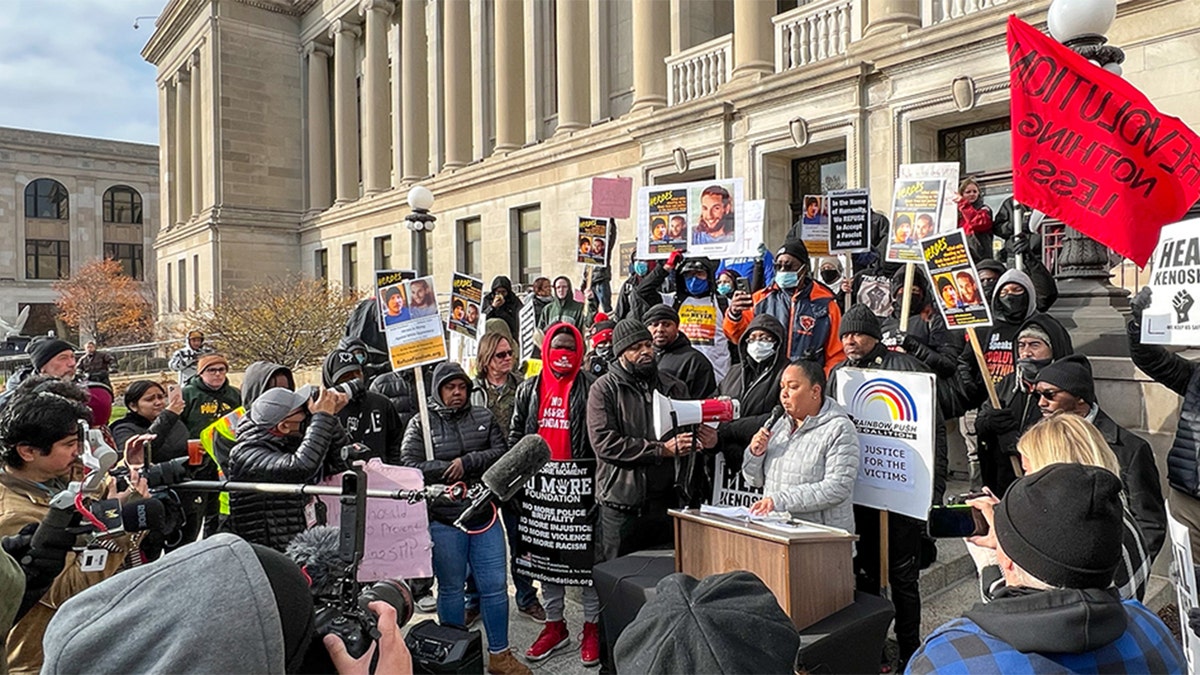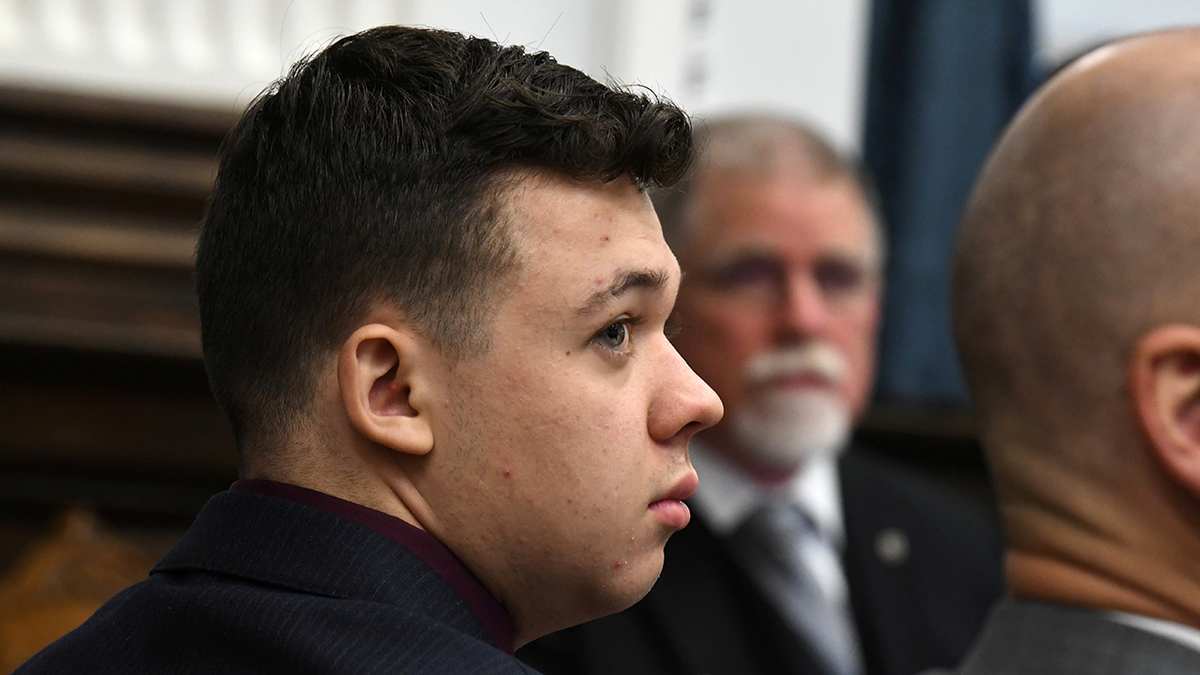There are several advantages and disadvantages of sequestering a jury in a criminal case, but attorneys say the decision not to isolate the 12-person jury in the Kyle Rittenhouse trial will not have a significant impact on jurors' decisions, despite vocal protesters outside the courtroom.
Deliberations went on for nearly eight hours Tuesday and continued into Wednesday after attorneys made their closing arguments on Monday.
With the decision to not sequester the 12-person panel, jurors could be susceptible to potential exposure from outside factors, including protesters, news media or encounters with members of the public, though they were told not to interact with such factors.

Mark Richards, Kyle Rittenhouse's lead attorney, gives his closing argument at the Kenosha County Courthouse in Wisconsin on Monday, Nov. 15, 2021. (Sean Krajacic/The Kenosha News via AP, Pool)
"There's no American jury that's going to let themselves be impacted by … it," John Pierce, attorney for Pierce Law, who represented Rittenhouse, told Fox News of the decision not to sequester jurors with protesters outside the courthouse. "However … if there was a conviction and it can be shown that there was an undue impact from some sort of mob justice warriors … that can be ethic grounds from either an appeal or a habeas corpus petition afterward."
Legal analyst Tracy A. Pearson said the advantage of sequestering a jury is having "the most control over what they see, what they hear, who they speak to, and what they are doing."
"This prevents, most of the time, the influence of outside sources of information," she said. "Jurors are instructed by the judge to only to consider evidence and not to consider information gleaned from news reports and conversations, they shouldn't have had, with their family and friends."

Protests outside Kenosha County Courthouse in response to the Kyle Rittenhouse trial. (Fox News)
Disadvantages of sequestering a 12-person jury and alternates include the cost of housing jurors for an unknown duration of time and the possibility of them becoming frustrated with being isolated and away from family that could lead them to "make a hasty decision to be freed from their own captivity."
Attorney Jamie White of White Law similarly said that the pros of sequestration include stopping "the risk of the jury being influenced by news, family and friends," and having "a true vacuum where the only evidence is what is presented in court."
"The cons are that human beings are human beings, and to put people in a hotel for two weeks with no contact with their families puts them out of sorts," he said. White gave the example of the weeks-long OJ Simpson trial, in which Simpson was acquitted in the 1990s.
KENOSHA PROTESTERS DEMAND RITTENHOUSE BE FOUND GUILTY
"Most court watchers blamed the sequestration that went on for weeks and weeks for that outcome, because you get people out of sorts as opposed to listening carefully, and they rush to get it over with because of the personal sacrifices they're making," White explained.
He continued: "It's possible when you have a high profile case, there is a risk jurors will bring their own political values, and any distraction, whether protesters or otherwise, is not helpful. But sequestration would not necessarily fix that problem. Maybe there could have been a roped off area, but sequestration would not have completely fixed that -- it just means jurors can't go home at night."

Kyle Rittenhouse during his trial at the Kenosha County Courthouse in Kenosha, Wisconsin, Nov. 11, 2021. (Mark Hertzberg/Pool via REUTERS)
Rittenhouse is facing charges of first-degree reckless homicide, first-degree intentional homicide, attempted first-degree intentional homicide and two counts of first-degree recklessly endangering safety after he fatally shot two people and injured a third person during the second night of civil unrest in Kenosha on Aug. 25, 2020.
If found guilty and convicted of first-degree intentional homicide, Rittenhouse will face a mandatory life sentence.
The judge tossed one charge of possession of a dangerous weapon by a person under 18 on Monday after Rittenhouse's defense team argued that a subsection of the law concerning short-barreled rifles was grounds for dismissal.
CLICK HERE TO GET THE FOX NEWS APP
His attorneys are arguing that the then-17-year-old was acting in self-defense after being attacked from behind when he shot Gaige Grosskreutz, 27, as well as deceased Joseph Rosenbaum, 36, and Anthony Huber, 26, in the riots following the police shooting of a 29-year-old Black man, Jacob Blake.
Groups of protesters – both defending and condemning Rittenhouse – appeared outside the courthouse on Tuesday and Wednesday as deliberations continued. A small group of demonstrators appeared Wednesday, on the 13th day of the trial, with megaphones that can be heard from inside the courtroom, though it is unclear if jurors can hear from inside the library where they are working to reach a verdict.
Fox News' Stephanie Pagones and Jiovanni Lieggi contributed to this report.











































